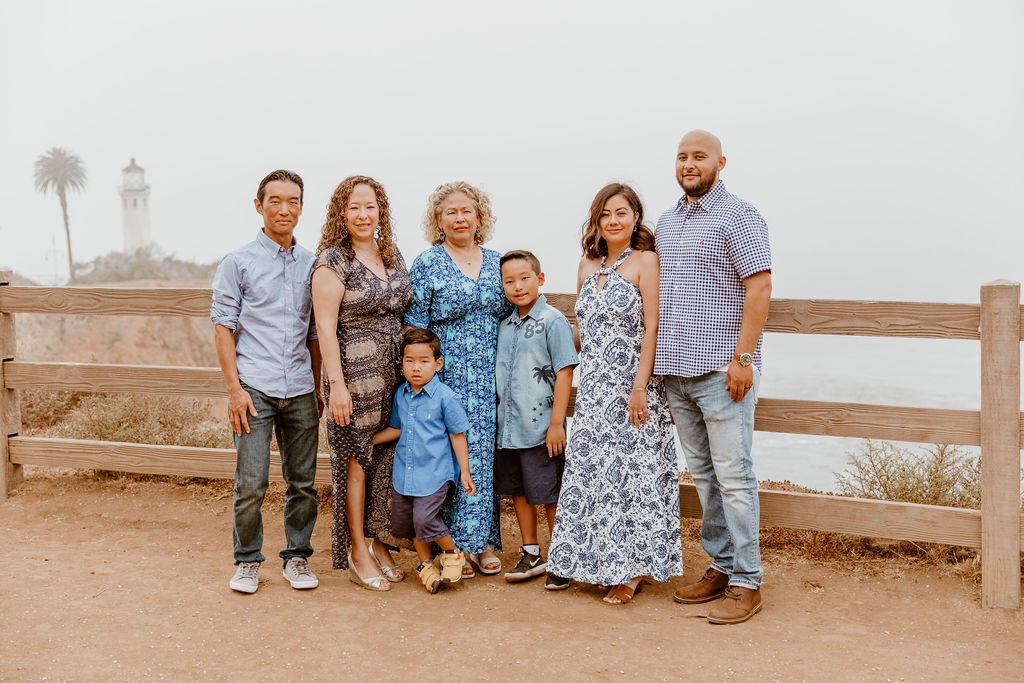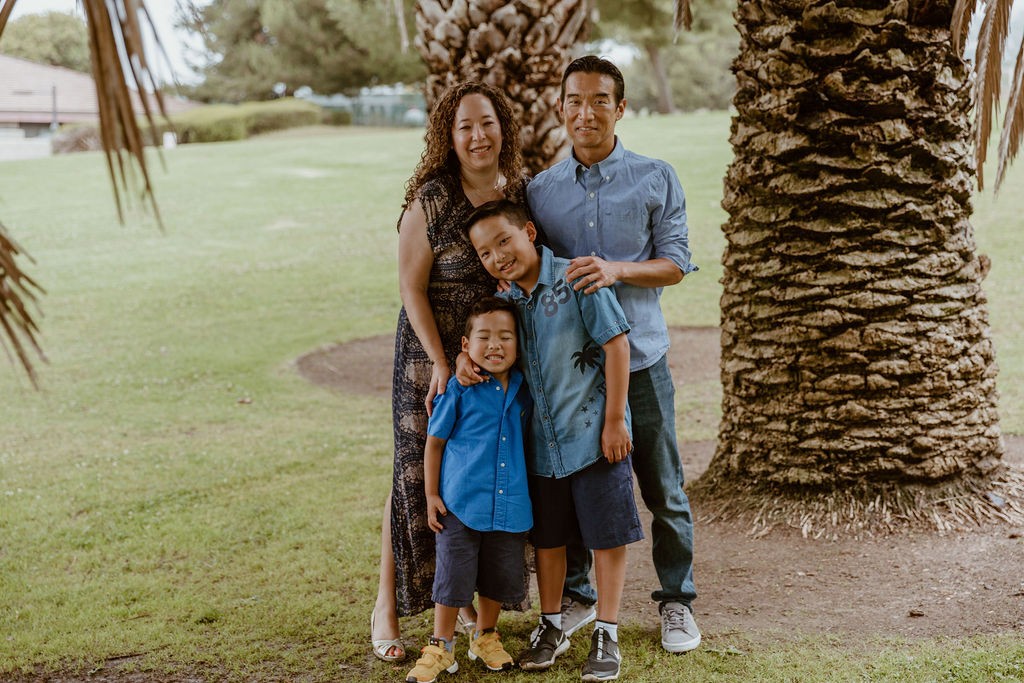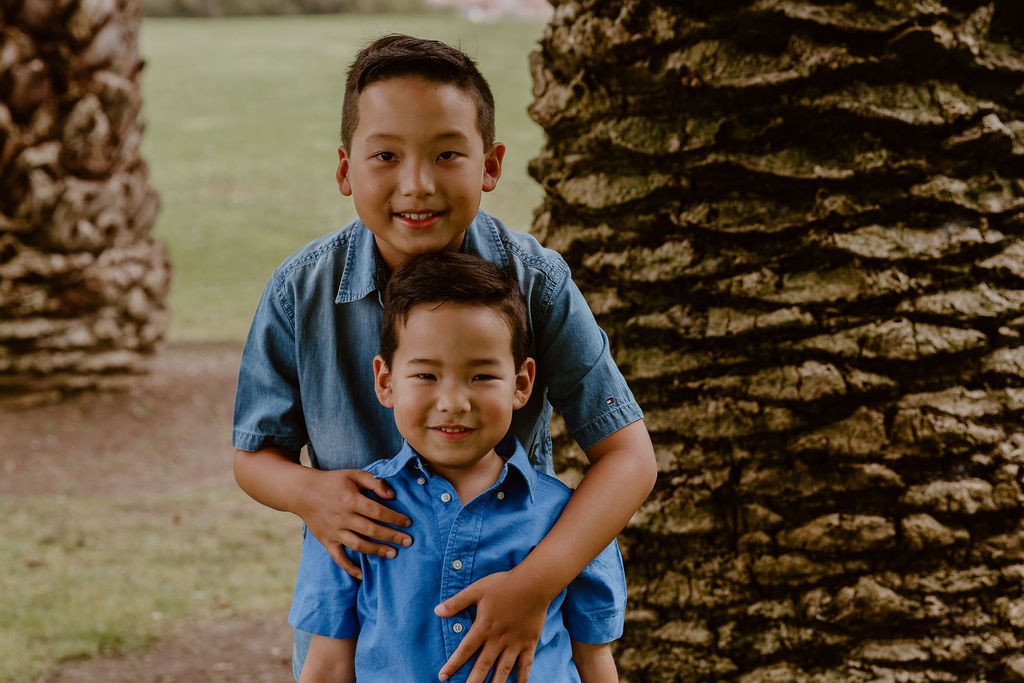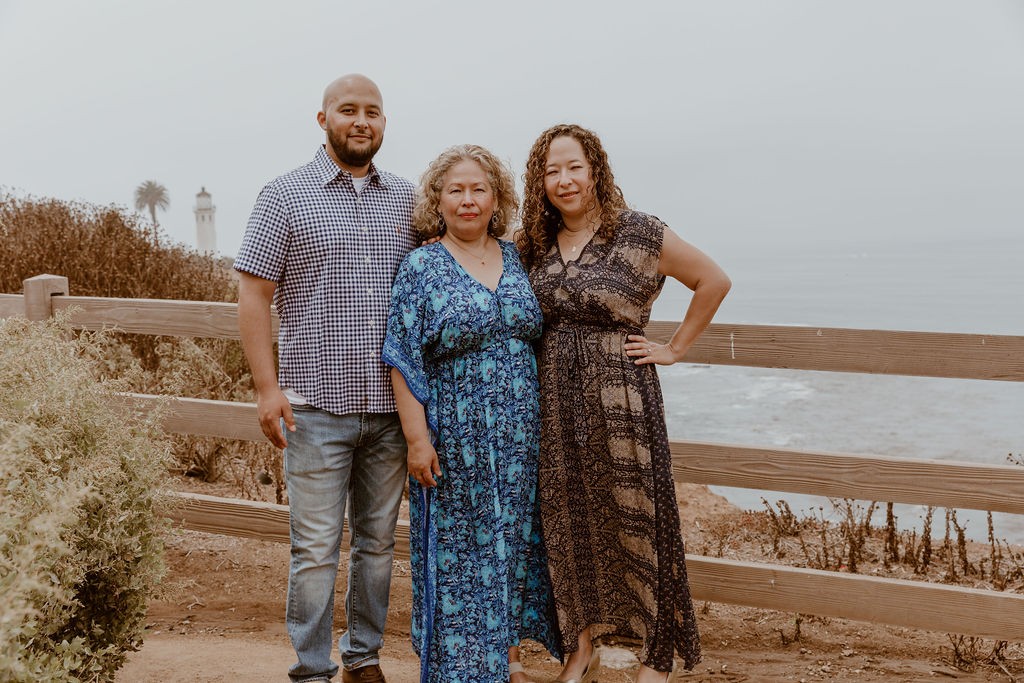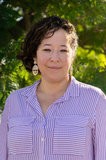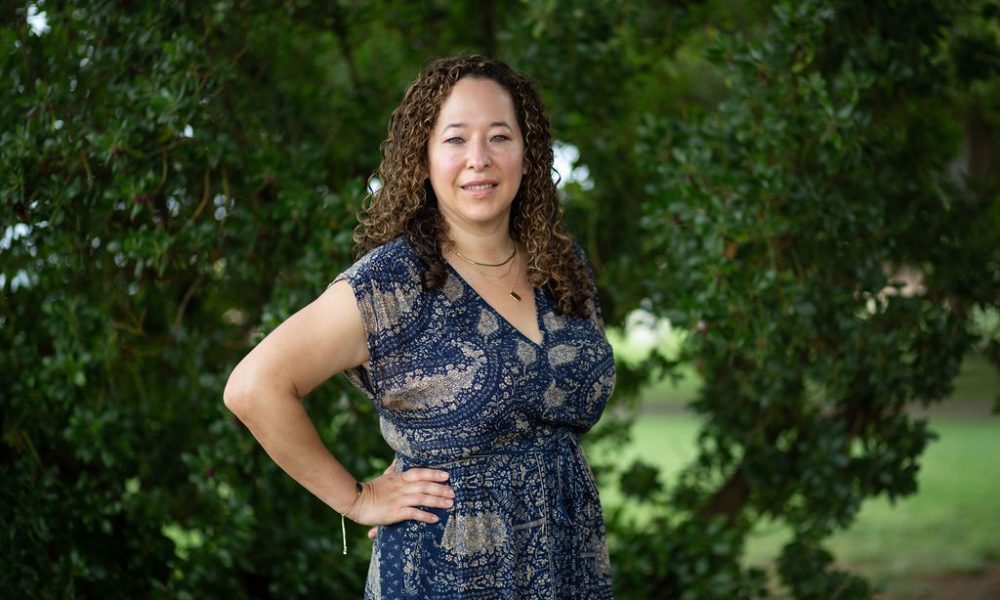

Today we’d like to introduce you to Debbie G. Ramirez.
Hi Debbie, it’s an honor to have you on the platform. Thanks for taking the time to share your story with us – to start maybe you can share some of your backstory with our readers?
My name is Debbie Gisela Ramirez. I am a daughter of Salvadoran immigrants who came to the U.S. in the early 1980s in search of safety from the civil war and to find opportunities for employment and overall better life conditions. My parents came from humble and poor beginnings in El Salvador and knew they wanted to be able to provide a different foundation for their future children. My father was sick with various medical conditions that were diagnosed at the early age of 18, therefore my mother was the sole economic provider throughout my childhood. My father passed away at the age of 33, just a month shy of my 10th birthday, and my brother was five. This event shook our world radically and changed the trajectory of our childhood/lives. In traumatic events as these, often we see families breaking apart or coming closer together.
In our experience, it brought my brother, mother and myself closer together, knowing that we had each other to navigate surviving the immense heartbreak of losing our father/husband. Being the oldest child and daughter, I jumped into caregiver mode to try to make things as easy as possible for our mother, whom was working graveyard shifts to be able to continue to provide financially to our family. I made sure my brother and I made it to and from school, and on the weekends, when my mother worked, I watched over my brother until she made it home. Additionally, it was around this time when I noticed the sadness in my mother’s demeanor and being, which later I became aware that it first started from childhood exposure to various traumas and only exacerbated by the loss of the love of her life. In retrospect, I can reflect that my own temperament as a highly-sensitive child and the circumstances of loss at an early age was the perfect recipe for what my career has been for the past almost 20 years a licensed clinical social worker.
I graduated from the USC School of Social Work in 2006 and was fueled by wanting to give back to my Latinx roots and community in mid-city Los Angeles, as well as support children and families who had experienced trauma, all of which I knew so well personally. I worked in a well-known nonprofit for over 12 years, first starting as a bilingual school-based therapist. In this role, I worked directly with immigrant families whom needed social and mental health support for their personal histories of trauma. I saw firsthand the way intergenerational trauma is a cycle that impacts the past, present, and the future if we don’t interrupt it with psychoeducation, intervention, and feeling like someone is on your side. The cycle of intergenerational trauma is even more impacted when we are working with marginalized folks who, because of their various intersectional identities, have so many barriers and obstacles set up by the systems in which we live in, that is beyond overwhelming. As a clinical social worker and a school-based therapist, I worked diligently with my families to advocate and support not only within the family system but also navigating the school systems, Department of Children and Family Services, Department of Social Services, Los Angeles Police Department, Los Angeles Department of Mental Health, and many more gigantic entities. With this experience, and obtaining my License in Clinical Social Work in 2010, it allotted me the opportunity to become a clinical supervisor and then Director of Domestic Violence and Child Abuse programs.
During my years of working in the nonprofit work and developing professionally, I also grew up personally, becoming a wife and then a mother of two boys. Becoming a mother has been such a game changer for me in that it made my priorities in my life, personally and professionally, much clearer. I am now more committed than ever to my own healing, self-nurturing and care, which is my dedication to continue to break the intergenerational pattern that has come long before the thought of me existed. I pride myself in not “talking the talk” with my clients but “walking the walk.” I believe in the power of healing because I work on it DAILY. Mental health is a commitment I have made to myself, and do my best to support my clients in incorporating rituals of mental self-care into their daily/weekly lives.
I opened my own private practice in 2015, but when I moved on from the nonprofit world in 2018, have focused on growing it more. I have named my practice “Latinx Wellness” because I believe in holistic and decolonized avenues of healing and wellbeing, as well as continuing my passion for helping my community. My practice focuses on supporting marginalized folks looking to end intergenerational trauma and transforming their lives, DNA, and futures into intergenerational HEALING. Where intergenerational trauma ends, intergenerational healing begins.
Part-time, I work at UCLA Health in a clinic that supports and focuses on Latinx mental health providing Spanish-speaking therapy, and also as a field instructor to masters in social work students, to continue to teach and mentor the new generation of social workers. Being intentional in my work has allowed me to stay passionate about the field of social work, healing, and overall hope for my sons’ generation.
Would you say it’s been a smooth road, and if not what are some of the biggest challenges you’ve faced along the way?
There have been various obstacles that have crossed my own path along the years. Identifying as a person of color, and a daughter of immigrant parents, there have been many moments in life that I have had to stumble and navigate on my own. I am a first-generation college graduate in my family, and I recall the difficulty in navigating how to apply for undergraduate and then graduate school, which was a very different experience than many of my peers. Additionally, learning how to identify my own personal history of trauma, and realizing the importance of my own healing, was a very difficult stage and phase of my life. I am so grateful of having a great support system between friends, family and significant other to get me through that stage of depression, grief, and overwhelm.
In my professional life, there are many obstacles that continue to interfere with the world of social work. The systemic racism and oppression that runs through the various bureaucracies and systems impact my clients/patients daily. My work as a mentor and teacher of future social workers helps me stay focused and hopeful for the future, and needs of my clients/patients, as I meet so many social work students who are passionate to work not only in intervention but also in macro settings to challenge and change these systems that keep so many marginalized groups in their oppressed state.
Thanks – so what else should our readers know about Latinx Wellness?
My mental health private practice is Latinx Wellness. I focus and specialize in working with adult individuals and families who identify as Latinx or a marginalized identity. I use Critical Race Theory as a foundational principle to be able to give voice to marginalized folks and validate their experiences in life. I am passionate about working with mothers and caregivers, as the studies show that maternal mental health is crucial to children’s mental health. My strength-based approach is based on believing that we are all born with inner wisdom that we become disconnected from, often at an early age, due to life’s ups and downs. I enjoy working with individuals by helping them reconnect to that inner wisdom within themselves. I incorporate mindfulness and spirituality, self-compassion, and other holistic wellness activities to also connect to ancestral practices and resiliency. I believe that just as intergenerational trauma is passed down, so is ancestral resiliency and strength.
Are there any important lessons you’ve learned that you can share with us?
The biggest lesson I have learned is the importance of commitment of one’s own well-being, which in turn, is a gift to the world. When we come from a place of healing, we can approach life with a different lens. People not only generally enjoy being around folks who exude healing and grounded-ness, they also tend to be inspired by the possibility of also developing this for themselves as well. As cheesy as this sounds, the world truly needs more healed people! I am passionate about taking care of myself, to the best of my abilities, and also being compassionate towards myself on the days that my “best” is just surviving and making it through the day. Being healthy can vary from day to day, or moment to moment, however working towards this, in the areas of body and mind, is something that is mine to have, and to hopefully share with others I interact with on a day-to-day basis.
Contact Info:
- Website: https://latinxwellness.com/
- Instagram: latinx_wellness_
